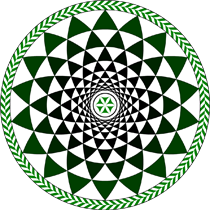Speaker
Dr
Tomasz Rozwadowski
(The Henryk Niewodniczański Institute of Nuclear Physics, Polish Academy of Sciences, Radzikowskiego 152, 31-342 Kraków, Poland)
Description
`Presented research concerns the investigations of vitrification and crystallization processes in 4CFPB (4-cyano-3-fluorophenyl 4-butylbenzoate) liquid crystalline substance. Glass transition is important issue in new-day condensed matter physics. Additionally, cold crystallization phenomenon is also interesting case, especially in connection to glass formation tendency. Descriptions of both phenomena were performed using various methods like adiabatic calorimetry, differential scanning calorimetry (DSC), polarizing microscopy (POM) and broadband dielectric spectroscopy (BDS). Dielectric experiments of 4CFPB were performed at various pressure conditions like normal pressure, high pressure at isobaric and isothermal conditions. Additional measurements were conducted for confined sample in intersecting silica nanopores.`
`Polymorphism investigations of 4CFPB has shown two liquid phases: isotropic and nematic, and three solid states like two crystalline phases (C II and C I) and glass of nematic with partial long range order of molecules. Additionally, during high pressure measurements liquid-like SmA phase was induced. Temperature-pressure phase diagram upon cooling and heating was constructed.`
`Investigated substance shows ease tendency to vitrify. Glass transition temperature was determined for various pressure conditions. In addition to calorimetric and dielectric methods, diminishing of number of cracks in glass around Tg were observed on heating by polarizing microscopy [1]. On further heating two types of mechanisms of CII crystallization were found. For slow heating (up to 5K/min) strong dependence of heating rate on temperature of full crystallization and half time of crystallization were identified. These facts indicates that diffusion controlled mechanism with the energy barrier 57 kJ/mol took place. For faster heating thermodynamic mechanism characterized by energy barrier 180 kJ/mol and small effect of heating rate on temperature of full crystallization and half time of crystallization was found [2].`
`Molecular dynamics studies have shown bimodal structural relaxations connected with flip-flop motions and precession of molecules were found in all pressure conditions. Secondary relaxation, positively tested as Johari-Goldstein type, was observed in nematic glass. In nanopores complexity of dynamics is quite different. New relaxation processes were found, connected with reptation and collective motions of molecules. The crystallization process of 4CFPB was not observed under confinement, only the molecular arrangement along pore walls was observed.`
References
[1] M. Jasiurkowska-Delaporte, E. Juszyńska, Ł. Kolek, J. Krawczyk, M. Massalska-Arodź, N.Osiecka, T. Rozwadowski, Signatures of glass transition in partially ordered phase, `$\textit{Liquid Crystals}$`, `$\textbf{40}$` (2013) 1436-1442.
[2] T. Rozwadowski , M. Massalska-Arodź , Ł. Kolek, K. Grzybowska, A. Bąk, K. Chłędowska, Kinetics of Cold Crystallization of 4-Cyano-3-fluorophenyl 4-Butylbenzoate (4CFPB) Glass Forming Liquid Crystal. I. Nonisothermal Process As Studied by Microscopic, Calorimetric, and Dielectric Methods, `$\textit{Crystal Growth & Design}$`, `$\textbf{15}$`(6) (2015) 2891–2900.
Author
Dr
Tomasz Rozwadowski
(The Henryk Niewodniczański Institute of Nuclear Physics, Polish Academy of Sciences, Radzikowskiego 152, 31-342 Kraków, Poland)
Co-authors
Dr
Katarzyna Grzybowska
(Institute of Physics, University of Silesia in Katowice, Uniwersytecka 4, 40-007 Katowice, Poland)
Prof.
Maria Massalska-Arodź
(The Henryk Niewodniczański Institute of Nuclear Physics, Polish Academy of Sciences, Radzikowskiego 152, 31-342 Kraków, Poland)
Prof.
Marian Paluch
(Institute of Physics, University of Silesia in Katowice, Uniwersytecka 4, 40-007 Katowice, Poland)

